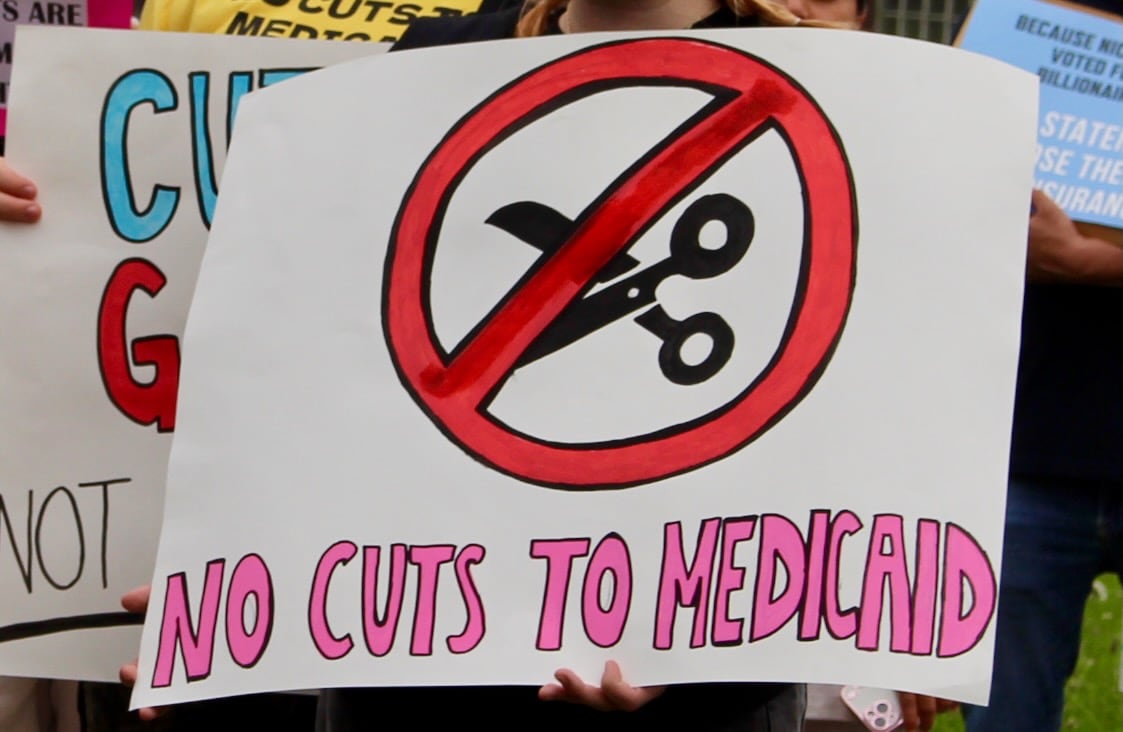By Stephanie Armour and Phil Galewitz, KFF Health News (TNS)
In order to receive treatment for her gastrointestinal issues and a bulging disc that causes pain when standing or sitting for extended periods of time, Stephanie Ivory depends on Medicaid. She stated that she is unable to work due to her impairments.
Ivory, 58, of Columbus, Ohio, is concerned about the reporting procedure but thinks she would be excluded from a requirement that adult Medicaid enrollees work. “Renewing Medicaid coverage every six months with the paperwork and phone calls is difficult enough,” she added.
In Warrenton, Missouri, Denise Sommer, who hasn’t had a job for five years, depends on Medicaid to receive treatment for her severe knee and back arthritis, high blood pressure, and anxiety.
Sommer, 58, believes that with a doctor’s letter, she might easily be eligible for an exemption. She claimed that the system is overly abused. She also stated that she is not concerned about other people losing their coverage due to noncompliance with reporting rules.
She claimed that was their own fault and that they should just read their mail and keep their address current with the state.
In order to implement most of his domestic agenda and extend his tax cuts, President Donald Trump’s One Big Beautiful Bill Act would mandate that 40 states and the District of Columbia, who have all expanded Medicaid, add a work requirement to the program. Students would be required to submit documentation on a regular basis attesting to their eligibility for an exemption or to the fact that they work, volunteer, or attend school for at least 80 hours every month.
Republicans who oppose Medicaid for non-disabled individuals contend that the work requirement will encourage more people to find employment. According to House Speaker Mike Johnson, it would help maintain Medicaid for those who legitimately need it, not for video game-playing 29-year-old men lounging on their couches.
Health policy experts question Johnson’s allegation last month that 4.8 million Medicaid enrollees are opting out of employment. A request for response from Johnson’s spokespeople was not answered.
More than 90% of working-age registrants who do not get federal disability payments are either employed or seeking employment, have a disability, attend school, or are caring for a family member and are unable to work, according to studies by the Urban Institute and KFF.
The majority of working Medicaid enrollees have low-paying jobs with few benefits, if any, and frequently long or irregular hours. Notably, they frequently do not have health insurance through their jobs.
About 300,000 Medicaid expansion members without dependents, or 2% of the total, cite a lack of interest in working as the reason they are unemployed, according to a recent Urban Institute research.
The nonpartisan Congressional Budget Office has not yet examined the Senate version of the plan, but it projects that the work requirement in the House version would result in around 5 million adults losing Medicaid coverage by 2034. According to the left-leaning research group Center for Budget and Policy Priorities, the Senate’s version would result in up to 380,000 additional people losing their insurance.
Based on the savings from not covering millions of current participants, the CBO estimates that the work-requirement provision in the House bill represents the greatest cut to Medicaid, amounting to around $300 billion over ten years.
According to Anthony Wright, executive director of Families USA, a consumer advocacy and policy group, the anticipated savings are significant. According to him, that conveys a feeling of the severity and order of its scale.
Republican-led states are likely to adopt more onerous reporting requirements, Wright added. However, he said that even a less strict strategy would impose bureaucratic requirements that would result in the loss of coverage for eligible recipients.
At Aspen Ideas: Health in Colorado on June 24, Stephanie Carlton, chief of staff for the Centers for Medicare & Medicaid Services, stated that officials in the Trump administration think the CBO is exaggerating the work requirement’s impact.
“We’re making it simple for people to use technology to report their work hours,” she said. In order to better integrate Medicaid recipients into their communities, she defended the proposed rule.
Our society has been disengaged from communities, particularly as a result of COVID-19. “We lose that human-to-human interaction because we spend so much time on social media and the internet,” Carlton added. People are being asked to get involved in their communities. In order to receive benefits, it is essentially a good thing to perform.
The GOP proposal would compel individuals to disclose their job or exemption status at least every six months, and possibly as often as every month, after they first enroll in Medicaid and complete the new work criteria.
Leslie Dach, the founder and leader of Protect Our Care, an advocacy group that backs the Affordable Care Act, stated that America shouldn’t be involved in this discussion. Consider the real world. People who work in retail or as seasonal employees may experience shifts in hours or business closures. You are expelled if you miss a month.
Along with conditions like being incarcerated or being the father of a dependent child, the GOP legislation cites disability as an exemption. (On June 16, the Senate released a bill that would only exempt parents of children under the age of 14.)
However, qualifying requirements for even federal and state programs that now serve people with disabilities vary.
States may have difficulties since many Medicaid members with disabilities do not receive Social Security Disability Insurance, according to Kevin Corinth, a senior scholar at the conservative American Enterprise Institute.
States are required to enroll SSI participants in Medicaid, while the federal government distributes what is known as Supplemental Security Income to people who fulfill specific requirements for being low-income and disabled.
However, according to KFF, around two-thirds of adult participants under 65 who are disabled—that is, have issues with their eyesight, hearing, mobility, or cognitive function, among other areas—do not receive SSI.
According to Corinth, it can be challenging to determine when someone is sufficiently incapacitated to be excused from the job obligation. States will need to make every effort to ensure that no one is left behind.
He stated that in order to ascertain whether registrants are employed, states will be obliged to rely on government databases, such as those kept by their labor departments. However, participants themselves may find it more difficult to prove a disability, he said.
Strict guidelines were established for those with impairments to obtain an exception in two states that had previously attempted to implement Medicaid work requirements.
For those who were not automatically excused by the state, there was a 10-step online exemption process for the Medicaid work requirement in Arkansas.
Thus, according to the National Health Law Program, just 11% of those subject to the requirement received a long-term exemption, despite the fact that 30% of them indicated one or more significant health impairments.
The KFF focus-group interviews with Medicaid users in Arkansas revealed considerable misunderstanding, a poorly designed web-based reporting system, and little outreach.
Georgia’s Medicaid employment requirement has also made it difficult for those who are trying to get a disability exemption. They must use the state’s online portal to seek a revision, and then they must wait for a call from the state to schedule an interview so that the application may be reviewed. The National Health Law Program states that before individuals may apply for Medicaid, they must first enroll in the state’s job-training program.
The number of people who requested for and were granted an exemption due to a disability has not been made public by Georgia.
According to KFF, more than one in five Medicaid participants have a handicap, including 43% of those aged 50 to 64 and 22% of those aged 19 to 49.
“Work-requirement programs in Arkansas and Georgia had no significant effect on employment even as they increased the number of uninsured adults,” said Michael Karpman, principal research associate for the Urban Institute, citing his group’s findings that only a small fraction of Medicaid enrollees are unemployed because they aren’t interested in a job.
He said that red tape makes it difficult to disclose job or obtain exemptions, which causes many people to drop off the Medicaid rolls. People find the documentation procedure difficult.
According to Karpman, a lot of people turn to Medicaid after losing jobs that offer health insurance. However, they would not be covered when looking for new employment due to the GOP work requirement.
Living on $1,100 a month from federal disability benefits, Chris Bryant, a Medicaid enrollee in Lexington, Kentucky, has a bleeding disorder and lives in government housing. According to him, requiring Medicaid recipients to work will merely create more obstacles for those whose health conditions prohibit them from working. He warned that it would be messy.
Bryant, 39, said that although he believes it’s a small percentage of the population, he knows Medicaid recipients who could work but choose not to. Medicaid is a mandatory program for those who have no other choice.
____
This article was written with assistance from Emmarie Huetteman.






